- About Us
- Columns
- Letters
- Cartoons
- The Udder Limits
- Archives
- Ezy Reading Archive
- 2024 Cud Archives
- 2023 Cud Archives
- 2022 Cud Archives
- 2021 Cud Archives
- 2020 Cud Archives
- 2015-2019
- 2010-2014
- 2004-2009
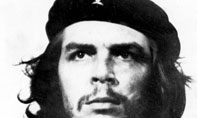 |
A Literature Review On The Road: A Solitary Traveler's Companion |
The opening chapter of Ernesto “Che” Guevera’s The Motorcycle Diaries is entitled ‘Entendamonos’ (‘so we understand each other’) and it includes the following lines:
‘In nine months of a man’s life he can think a lot of things, from the loftiest meditations on philosophy to the most desperate longings for a bowl of soup - in total accord with the state of his stomach.’
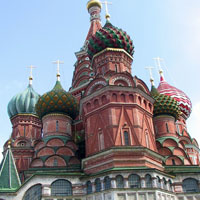 Having spent just over nine months on the road, a large part of which included unintentionally following Guevera’s route through South America, I’d identify with this introduction (perhaps weighted more in favour of the soup than the philosophy), but would add that “in nine months of a man’s life he can read a lot of things” while traveling also.
Having spent just over nine months on the road, a large part of which included unintentionally following Guevera’s route through South America, I’d identify with this introduction (perhaps weighted more in favour of the soup than the philosophy), but would add that “in nine months of a man’s life he can read a lot of things” while traveling also.
And more than just reading airport pulp fiction, this traveler consciously read Tolstoy, Bulgakov and Dostoyevsky in Russia, Cervantes in Spain, Neruda in Chile, and so on, hoping to somehow enrich, provide background for and understand the experience of different countries. When baggage allowances and backpack space are always lurking as a simmering constraint on purchases, a collection of books may not be the lightest, smallest and therefore wisest assembly of overseas belongings, but once the classic has been bought, the name, place and date written inside the front cover, it can be as powerful a source of recollection as the finest National Geographic style photo, expressive email, stamp in the passport or “I’ve been to the Great Wall” T-shirt.
And so I returned home in November this year, having traveled in South America, Europe and Asia, to review not so much any one of the thirty books that passed through airport security with me (yes, I kept count), but rather to review the solitary traveler’s companion - the book itself.
The Travel Book
The lines that immediately follow Guevera’s opening remarks, reproduced above, that continue to introduce The Motorcycle Diaries are as follows:
‘And if, at the same time, he’s somewhat of an adventurer, he might live through episodes of interest to other people and his haphazard record might read something like these notes.’
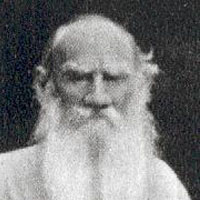 Fortunately for that renegade traveling author, his ‘episodes of interest to other people’ remain poignant - perhaps even exaggerated in the Rastafarian world, where his bearded visage graces a T-shirt in every stall of every struggling market. What, however, of the dated, the unobtainable, or the irritating source of envy that rears from the pages of travel books? The South American classic In Patagonia by Bruce Chatwin recounts an innocent (albeit possibly fictionalised) world that has nearly vanished, where ‘Gringo Trails’ and luxury coaches have replaced isolated British communities, Butch Cassidy and the Sundance Kid and wandering from barn to barn in the expectation of unconditional generosity.
Fortunately for that renegade traveling author, his ‘episodes of interest to other people’ remain poignant - perhaps even exaggerated in the Rastafarian world, where his bearded visage graces a T-shirt in every stall of every struggling market. What, however, of the dated, the unobtainable, or the irritating source of envy that rears from the pages of travel books? The South American classic In Patagonia by Bruce Chatwin recounts an innocent (albeit possibly fictionalised) world that has nearly vanished, where ‘Gringo Trails’ and luxury coaches have replaced isolated British communities, Butch Cassidy and the Sundance Kid and wandering from barn to barn in the expectation of unconditional generosity.
More remote still are Robert Byron’s Road to Oxiana through Persia, or the wonderful observation of Patrick Leigh Fermor’s A Time of Gifts. The envy one feels towards an 18 year old Fermor when he walks from London to Constantinople in 1933, through Weimar Germany and European empires - now dissolved, is tempered only by the sense that it can never be replicated, but only enjoyed as a historical relic. In a more contemporary setting, there’s the dissatisfaction of wanderlust - when I read Jo Simpson’s Touching the Void and John Krakauer’s Into Thin Air, I wanted to be the heroic mountain climber and was teased by the adventure that was tragic yet inspiring. Would you trade your life for Henri Charriere’s to be able to write Papillon - assuming it is in fact true?
Do I want to read of others’ bravery and adventure, or seek out my own?
The Classic
Less challenging to the male bravado is to read the masterpieces of a country. Tolstoy’s War and Peace, was read before arriving in Russia, such that flying in over fields that had been laid to waste by French troops, I clung to images of the ghosts of Napoleons columns, now among ghostly columns of former Soviet industry en route to Moscow’s Domodedevo airport. Lonely Planet - Russia and a Qantas “Round-the-World” ticket can land you in St Petersburg and Moscow, but only Dostoyevsky’ The Idiot or Bulgakov’s The Master and the Margarita could lead you through obscure city streets. The Idiot also illustrated the wonderful role of friendship that Wordsworth’s Classics occupy in the budget traveler’s wanderings - cheaper, albeit with the periodic typo, but they are durable and cheap - Dostoyevsky’s great work was bought in an English bookstore in St Petersburg for the same price as a foul tasting rural vodka … both led to some form of delirium mind you.
The Timing and Perspective
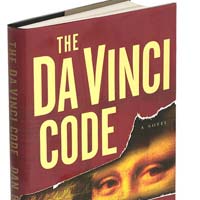 Then the question arises of whether to read before or after visiting a country (or both, though with so many books to read, can you justify reading one twice?). Isabel Allende’s memoir My Imagined Country made wonderful sense after visiting Chile - even if read expectantly, hoping for a categorical explanation of my unrequited love for a Chilean beauty. A little like retrospective map reading (figuring out where you’ve been after the event) perhaps the act of reading after the indulgence of the place allows a nostalgia - nostalgia that needn’t be as melancholic as Allende’s writing. Conversely, Alain de Botton suggested in The Art of Travel that one may suffer disappointment in a place that you’ve read about before you visit (like reading the book before you see the movie).
Then the question arises of whether to read before or after visiting a country (or both, though with so many books to read, can you justify reading one twice?). Isabel Allende’s memoir My Imagined Country made wonderful sense after visiting Chile - even if read expectantly, hoping for a categorical explanation of my unrequited love for a Chilean beauty. A little like retrospective map reading (figuring out where you’ve been after the event) perhaps the act of reading after the indulgence of the place allows a nostalgia - nostalgia that needn’t be as melancholic as Allende’s writing. Conversely, Alain de Botton suggested in The Art of Travel that one may suffer disappointment in a place that you’ve read about before you visit (like reading the book before you see the movie).
Preconceptions? Balance? I became aware that the content of my reading had a marked impact on my appreciation of a country. The Rape of Nanking and Behind Bamboo couldn’t help but colour my view of the Japanese, an unfortunate bias that emerged from unsavory tales of wartime atrocities. Would I have warmed to Russia so much if I’d read Anthony Beevor’s Berlin (the brutal story of the cold blooded Russian advance across Europe to Berlin in 1944-45) instead of his earlier work Stalingrad (the brutal story of the cold blooded German 6th Army advancing to laying siege to Stalingrad leading up to 1944)? Perhaps regardless of the perspective, any history of a country is part of that place. Without fail, Spaniards were interested in the fact that I was reading Don Quixote irrespective of their view of the chivalrous knight errant.
A World Away In Another World
Feeling some form of intellectual snobbery I’d resisted the urge in recent years in Australia to read The Da Vinci Code and seemingly reduce what I considered to be highbrow literary tastes. It struck me that sitting on public transport reading Dan Brown’s bestseller, showed everyone around you that you’d succumbed to mass marketing - so in a guilty retreat, I locked myself in a friend’s Brussels apartment and read the damn book, away from judgmental eyes such as my own. The bookshelf also offered The 100 Greatest Wallabies by Peter Jenkins, so it was something of an escapist period in the heart of European Union (as far as I observed, when I ventured out of the apartment, the Eurocrats must feel much the same when in Belgium).
Shortly afterwards, I read the one piece of complete fantasy for the year’s reading list - science fiction - Frank Herbert’s Dune. Engaging, a classic, a landmark of its genre and entertaining to read, like the “Brussels Reading List”, it felt like a guilty indulgence - almost unworthy of a place besides Second World War History, famous poets - Whitman, Wordsworth and Neruda and national heroes - Vargas Llosa, Garcia Marquez, etc.
There may be a time for escapism, but not when you’ve already escaped.
The Verdict - A Solitary Traveler’s Companion
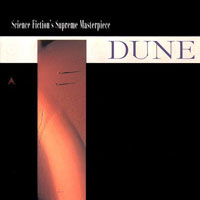 Aware of the backpacker’s habit of swapping books on the road, in youth hostels and at bookstores, I stoically held on to every book that came my way (that were mine to keep at least). Writing my name on the inside cover, identified me with the book, and the book in turn identified itself with the country. Cervantes told me more about Spain than the tapas bar maid in Madrid, while I heard more of Cervantes while on a train through La Mancha than would have been the case on a train through Sydney.
Aware of the backpacker’s habit of swapping books on the road, in youth hostels and at bookstores, I stoically held on to every book that came my way (that were mine to keep at least). Writing my name on the inside cover, identified me with the book, and the book in turn identified itself with the country. Cervantes told me more about Spain than the tapas bar maid in Madrid, while I heard more of Cervantes while on a train through La Mancha than would have been the case on a train through Sydney.
I’d heard poetry recited before, but never as sensually as from the lips of a Peruvian woman in Lima, attempting to read the great Chilean poet Pablo Neruda in English.
I’d packed essentials before - credit card, passport, yellow fever injection documentation, but at times felt that the possession I could least do without was my battered, nearly finished copy of War and Peace.
I may have traveled alone for the most part, but there were no days of solitude when One Hundred Years of Solitude was in my daypack.
The Reading List, January to November 2005
(in chronological order)
IN PREPARATION
- My Imagined Country, Isabel Allende (unfinished)
SOUTH AMERICA
- 2. War and Peace, Leo Tolstoy
3. In Patagonia, Bruce Chatwin
4.The Essential Neruda, Pablo Neruda
5. Leaves of Grass, Walt Whitman
6. The Notebooks of Don Rigoberto, Mario Vargas Llosa
7. One Hundred Years of Solitude, Gabriel Garcia Marquez
EUROPE
- 8. The Da Vinci Code, Dan Brown
9. 100 Greatest Wallabies, Peter Jenkins
10. Bruce Chatwin, Nicholas Shakespeare
11. Drown them in the Sea, Nick Angel
12. Into Thin Air, John Krakauer
13. Papillon, Henri Charriere
14. The Road to Oxiana, Robert Byron
15. Touching the Void, Joe Simpson
16. A Time of Gifts, Patrick Leigh Fermor
17. Collected Works, William Wordsworth
18. Clash of Fundamentalisms, Tariq Ali
19. Dune, Frank Herbert
RUSSIA
- 20. Flights into the Foreign, Pico Iyer
21. The Master and the Margarita, Michael Bulgakov
22. Stalingrad, Anthony Beevor
23. The Idiot, Fyodor Dostoyevsky
SPAIN
- 24. Birds Without Wings, Louis de Bernieres
25. Don Quixote, Miguel Cervantes
ASIA
- 26. The God of Small Things, Arundhati Roy
27. The Rape of Nanking, Iris Chang
28. Behind Bamboo, Rohan Rivett
UPON RETURN
- 29. Tuesdays with Morrie, Mitch Alborn
30. My Imagined Country, Isabel Allende (finished)
31. The Motorcycle Diaries, Ernesto Guevera
